
EUROPEAN JOURNAL OF EPIDEMIOLOGY
Scope & Guideline
Elevating epidemiological knowledge for a healthier Europe.
Introduction
Aims and Scopes
- Epidemiological Cohort Studies:
The journal publishes extensive research on cohort studies, particularly those that analyze long-term health outcomes, risk factors, and the impact of various exposures on disease incidence and mortality. - Public Health and Policy Implications:
Research that provides insights into public health practices, policies, and interventions is a core focus, emphasizing studies that can inform health systems and improve population health outcomes. - Methodological Innovations:
The journal highlights advancements in epidemiological research methodologies, including novel statistical approaches, causal inference techniques, and the application of Mendelian randomization. - Chronic Disease Epidemiology:
A significant portion of the published studies addresses chronic diseases, including cancer, cardiovascular diseases, and neurodegenerative disorders, exploring their epidemiology and associated risk factors. - Environmental and Lifestyle Factors:
Research examining the influence of environmental exposures, lifestyle choices, and dietary patterns on health outcomes is a consistent theme, reflecting the journal's commitment to understanding modifiable risk factors.
Trending and Emerging
- Longitudinal and Life-Course Studies:
There is a growing emphasis on longitudinal and life-course epidemiology, which examines how exposures and health outcomes develop over time, shedding light on the complexities of disease progression. - Mendelian Randomization and Genetic Epidemiology:
The application of Mendelian randomization and genetic epidemiology is increasingly prevalent, allowing researchers to infer causal relationships between exposures and outcomes using genetic variants. - Mental Health Epidemiology:
Research focusing on mental health, particularly the impact of socio-economic factors and lifestyle on mental health outcomes, is becoming more prominent, reflecting a broader recognition of mental health as a critical public health issue. - Impact of Climate Change on Health:
Emerging studies are beginning to explore the health impacts of climate change and environmental factors, indicating a shift towards understanding how global environmental changes affect population health. - Health Disparities and Social Determinants of Health:
There is an increasing focus on health disparities and the social determinants of health, aiming to understand how socio-economic status, education, and environment influence health outcomes across different populations.
Declining or Waning
- Infectious Disease Epidemiology:
Research specifically focused on infectious diseases, while still present, has decreased in frequency, possibly due to the shift towards chronic disease and non-communicable disease research in light of the COVID-19 pandemic. - Classic Randomized Controlled Trials (RCTs):
The journal's emphasis on traditional RCTs has diminished as newer observational and cohort study designs gain popularity, particularly in the context of complex health interventions. - Historical Epidemiological Studies:
There appears to be a declining interest in studies that primarily focus on historical epidemiological analyses, as contemporary research increasingly prioritizes real-time data and current health issues. - Pharmacological Interventions:
Studies specifically evaluating the effects of pharmacological interventions on health outcomes have become less frequent, potentially overshadowed by a focus on lifestyle factors and preventive health. - Single-Condition Studies:
There is a noticeable decrease in research that exclusively focuses on single diseases or conditions, with a growing trend towards multi-condition or syndromic approaches in epidemiological research.
Similar Journals
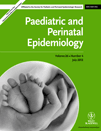
PAEDIATRIC AND PERINATAL EPIDEMIOLOGY
Exploring the Intersection of Child and Maternal HealthPAEDIATRIC AND PERINATAL EPIDEMIOLOGY is a premier journal in the field of epidemiology, published by WILEY. Established in 1987, it provides an invaluable forum for researchers, professionals, and students interested in the intersections of pediatric health and perinatal epidemiology. With its strong reputation, the journal holds a distinguished Q2 ranking in Epidemiology and a Q1 ranking in Pediatrics, Perinatology, and Child Health as of 2023, indicating its influential role in advancing knowledge and practice. The journal is indexed in Scopus, boasting impressive rankings, including Rank #52 out of 330 in Pediatrics, with an 84th percentile standing, demonstrating its significant impact in the field. Although not an Open Access journal, PAEDIATRIC AND PERINATAL EPIDEMIOLOGY equips its readers with high-quality research aimed at improving child and maternal health outcomes, making it a vital resource for anyone committed to advancing public health in these critical areas.
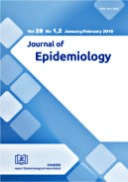
JOURNAL OF EPIDEMIOLOGY
Empowering the epidemiology community with knowledge.JOURNAL OF EPIDEMIOLOGY is a premier peer-reviewed journal published by the JAPAN EPIDEMIOLOGICAL ASSOCIATION dedicated to advancing the field of epidemiology and public health. With an impressive impact factor and recognition as a Q1 journal in both the epidemiology and miscellaneous medicine categories, it ranks in the top percentile of its field, occupying the 28th position out of 148 journals in epidemiology according to Scopus. Since its inception in 1991, this open access journal has provided researchers, practitioners, and students with valuable insights and findings that shape healthcare policies and practices globally. The journal covers a broad range of topics within epidemiology, fostering a multidisciplinary approach to understanding and addressing health challenges. With a commitment to high-quality research and accessibility, the JOURNAL OF EPIDEMIOLOGY plays a crucial role in the dissemination of knowledge and best practices within the public health community.

Nepal Journal of Epidemiology
Connecting researchers to enhance global health insights.Nepal Journal of Epidemiology is a leading platform dedicated to the advancement of epidemiological research and public health knowledge in Nepal and surrounding regions. Published by the International Nepal Epidemiological Association, this journal presents a unique opportunity for researchers, healthcare professionals, and students to disseminate their findings and engage with critical issues in epidemiology. With a clear focus on enhancing public health through rigorous research, the journal serves as a vital resource for the global community interested in understanding the epidemiological landscape of Nepal. While currently open access options are limited, the journal strives to provide quality content to enhance the visibility of local research. The lack of a formal impact factor does not diminish its significance; instead, it represents a burgeoning field ripe for exploration. Researchers are encouraged to contribute to this essential discourse and establish connections with local and international audiences in the field of epidemiology.

Central European Journal of Public Health
Empowering Public Health Through Comprehensive ResearchThe Central European Journal of Public Health, ISSN 1210-7778 and E-ISSN 1803-1048, is a vital academic forum published by the NATIONAL INSTITUTE OF PUBLIC HEALTH, Czech Republic. With its comprehensive coverage of contemporary issues in public health and medicine since its inception in 1993, this journal aims to bridge the gap between research and practice, fostering a deeper understanding of health dynamics within Central Europe and beyond. As a Q3 ranked journal in both the fields of Medicine (miscellaneous) and Public Health, Environmental and Occupational Health as per 2023 metrics, it provides an accessible platform for innovative studies, policy analyses, and reviews that contribute to the global discourse on public health challenges. Though primarily based in the Czech Republic, it welcomes contributions from a worldwide audience, enhancing its scope and impact. Researchers, practitioners, and students will find invaluable insights that not only enrich academic scholarship but also inform effective public health interventions.
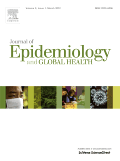
Journal of Epidemiology and Global Health
Championing the dissemination of pivotal epidemiological knowledge.The Journal of Epidemiology and Global Health (ISSN: 2210-6006; E-ISSN: 2210-6014), published by SpringerNature, stands as a premier open-access platform in the field of epidemiology, dedicated to advancing our understanding of global health challenges since 2011. Based in Switzerland, this journal is recognized for its significant contributions to the discipline, achieving an impressive Q1 ranking in Epidemiology and positioning itself at the 88th percentile within the Scopus Medicine - Epidemiology category. With a goal to disseminate innovative research and foster dialogue among scholars, public health professionals, and students, the journal provides a rich repository of empirical studies, reviews, and theoretical contributions that address pressing epidemiological issues. Its commitment to open access ensures that vital research is freely available to the global community, thereby amplifying its impact and relevance. Researchers seeking to publish and access high-quality, peer-reviewed articles will find the Journal of Epidemiology and Global Health an invaluable resource in navigating the ever-evolving landscape of public health.

Nutrition Journal
Unlocking the Secrets of Nutrition and Health.Nutrition Journal is a prestigious open-access publication from BMC, dedicated to advancing the field of nutrition and dietetics since its inception in 2002. With an impressive impact factor and a notable Scopus ranking, it ranks in the top quartile (Q1) in both Medicine (miscellaneous) and Nutrition and Dietetics, highlighting its significant contribution to health sciences. Based in the United Kingdom, the journal covers a broad spectrum of topics, making it an essential resource for researchers, healthcare professionals, and students interested in nutrition's role in health and disease prevention. The journal not only facilitates the dissemination of groundbreaking research but also prioritizes accessibility, allowing global audiences to engage with vital findings that shape dietary practices and public health policies. With a commitment to interdisciplinary collaboration, Nutrition Journal fosters an environment where innovative ideas and evidence-based solutions can flourish, making it a cornerstone reference in the field.
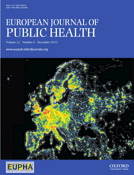
EUROPEAN JOURNAL OF PUBLIC HEALTH
Pioneering insights for a healthier Europe.The EUROPEAN JOURNAL OF PUBLIC HEALTH, published by Oxford University Press, is a pivotal platform for disseminating research and advancements in the field of public health. Since its inception in 1991, this journal has established itself as a premier source of knowledge, holding a distinguished Q1 quartile ranking in Public Health, Environmental, and Occupational Health, as reflected in the 2023 Scopus rankings, where it ranks #156 out of 665 journals in this category. The journal’s commitment to high-quality research is evidenced by its impact, reaching the 76th percentile among its peers. With no Open Access option, it ensures that scholarly articles maintain significance and rigor, catering to researchers, professionals, and students who are passionate about improving public health outcomes. Its rigorous review process and diverse international contributions make it an essential resource for those aiming to stay at the forefront of public health research in Europe and beyond.
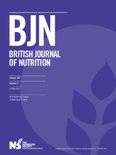
BRITISH JOURNAL OF NUTRITION
Unveiling the Science Behind NutritionThe British Journal of Nutrition, a premier publication in the field of nutrition and dietetics, is brought to you by Cambridge University Press. Established in 1947, this journal has consistently provided a platform for groundbreaking research and innovation in the domain of nutrition, boasting an impressive converged timeline extending to 2024. Recognized for its high academic standards, it proudly holds a Q1 ranking in Medicine (miscellaneous) and a Q2 ranking in Nutrition and Dietetics as of 2023, reflecting its impact and relevance in the scientific community. With a Scopus rank of 75 out of 398 in Medicine and 38 out of 140 in Nutrition and Dietetics, the journal remains a vital resource for researchers, professionals, and students seeking to enhance their knowledge and understanding of nutritional science. While the journal is not open access, it offers a wealth of valuable insights, making it an essential addition to any academic collection focused on health and nutrition.

Clinical Epidemiology and Global Health
Fostering global collaboration for impactful health solutions.Clinical Epidemiology and Global Health, published by Elsevier - Division Reed Elsevier India Pvt Ltd, is a leading open-access journal dedicated to the dissemination of research in the crucial fields of epidemiology and global health. With an ISSN of 2452-0918 and an E-ISSN of 2213-3984, this journal has been a platform for innovative studies since its inception in 2013, converging into a comprehensive resource through 2024. Operating from the Netherlands and ensuring accessibility from anywhere in the world since its transition to an open-access model in 2021, it fosters the global exchange of knowledge. The journal's impact is reflected in its current quartile rankings, including Q2 in Public Health, Environmental and Occupational Health and Q3 in Epidemiology, Infectious Diseases, and Microbiology. With a growing reputation bolstered by SCOPUS rankings that place it in the top percentiles, Clinical Epidemiology and Global Health stands as an essential resource for researchers, professionals, and students dedicated to advancing public health and epidemiological research.
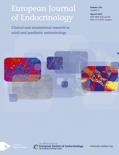
EUROPEAN JOURNAL OF ENDOCRINOLOGY
Exploring the Frontiers of Endocrinology and DiabetesEUROPEAN JOURNAL OF ENDOCRINOLOGY, published by Oxford University Press, stands as a premier international platform dedicated to advancing research in the burgeoning field of endocrinology, diabetes, and metabolism. Since its inception in 1994, this esteemed journal has gained recognition for its rigorous peer-reviewed articles and innovative studies, evidenced by its impressive Q1 rankings across multiple categories, including Endocrinology and Medicine. With a focus on disseminating critical findings and fostering interdisciplinary collaboration, the journal ranks 33rd out of 244 in Endocrinology, Diabetes, and Metabolism, and 20th out of 128 in Biochemistry, Genetics, and Molecular Biology according to Scopus metrics, positioning it in the top percentiles for researchers worldwide. Although it does not offer open access, the journal remains a vital resource for academics and practitioners alike who seek to stay at the forefront of endocrine research. The EUROPEAN JOURNAL OF ENDOCRINOLOGY continues to push the boundaries of knowledge, driving forward the understanding of complex hormonal functions and their clinical implications.